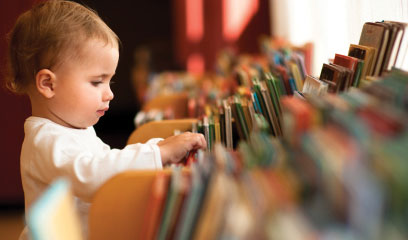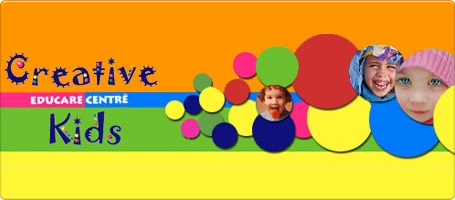Tips for developing your Baby's Brain
Before you discover ways, understand that babies are quick learners. They are nature’s wonderful creatures which are quick learners and growers. Given the right treatment, they can speech quickly at a rate that might surprise you. You need not necessarily focus on finding ways to educate for this purpose. There are many routine activities that you do with your child that have their own part in education. The different ways are discussed below:
Be playful
Be their best buddy with them; indulge in playing activities as much as you can to keep them happy and bonded with you. Play ‘peek a boo’, ‘hide n seek’, ‘follow the leader’ and so on. Lie down with them and let them jump and crawl over you. It will cost you much less than buying dedicated play equipment for them and it will be more fun as well. Be completely open with them, go crazy! Children love that and will also encourage the boost of their problem solving and coordination skills.
Encourage Outdoors
This is the age of your child when you’ve got all the time with him/her. Utilize it the best you can by taking time out for outdoor strolls and /or walks. Taking in the fresh air, discovering outdoors, interacting with domestic animals can be very beneficial for your child. Similarly, feel free to rake him to shopping with you. The new faces, colors and sounds are a great source for baby entertainment.
Be patient and improvise
Sometimes it may seem that your child is doing the things you hate like throwing his cutlery off the high chair just to annoy you, but it’s not like that. It might be that he/she is observing gravity. Hence, be patient and go pick them up. Never scold them; it would only ruin the moment. Rather you can improvise by making it a game: tell them that they’ll get a dreadful ‘tickle’ if they throw things on the floor again.
Play with nursery rhymes
Nursery rhymes are a wonderful way of educating children along with making a playful and enjoyable time for both the child and the parent. Repeat the lines of the rhymes when you sing to them. This will encourage the memory capability of the child and also learn important lessons in them.
Give it a break
Sometimes it is better to just sit on the floor with your baby. No music, toys or playful tricks. Just sit and observe, see where your child takes you. Your baby’s brain is always going places and thus will never sit idle. Let him crawl around the house and identify the things he saw yesterday. Follow his lead around the house and see where he stops or which object he wants to play. This will strengthen the bond and the child will want to play with you more.
Conclusion
The age between 0-3 is a wonderful age of children; they learn things very fast and are very receptive. They are quick in recognizing sounds of elders and this advantage can be used to teach them swimming as well. Therefore, you must be careful in how their environment is for they learn quickly from their surroundings and can have many influences.
Why Creative Education is Important for Kids
Creative education is the fuel to the engine that is creative thinking, and creative thinking is what’s required for the cultivation of great ideas. The ideal age for tweaking with this engine is the toddler (pre-school) and the early school years. In this part of his age, a child is more flexible to the teachings and hence, it determines a child’s future behavior and/or personality. Hence, the future of a child (and consequently the country) depends on the creative education imparted to it in its early pre-school years.

What research tells us?
Studies indicate that when a toddler (or kid for that matter) is given the time or opportunity to play outside and be creative on their own, it improves the brain’s function to generate great ideas. The ideas are based on experience and the child is not always sure that it might work or if it is a good idea, but the child learns on his own nevertheless which is a great contribution to the instinct. This contribution is the very creativity required as a great part of growing up. The imaginative play, playing with objects, imaginary friend, playing with the sand, the birds, all is a part of the learning for the child. For instance, when building blocks toddlers make a lot of mistakes with the structures but at the same time he tries to get the building straight up and stable. Each time he learns something new: a better structure and perhaps the reason for it to remain stable. This learning will later on develop the motivation to generate solution on his own. One of the major reasons is that the human mind tends to remember the things that led to his success thus exploring the outdoors and letting the kid think on his own would do greatly to the personality.
What you can do?
The brain is like a muscle; the more you use it, the stronger it gets. Muscles also have the characteristic of loosening their strength or weakening if not used so often. It is up to the parents to ensure the health of this muscle among other things as a part of the nurturing. It must not however be made to look like a daily task or a daily responsibility like school because that has the risk of being labeled as something boring. Just like manners and good eating habits are taught indirectly via Nursery Rhymes which keep the child’s interest, Creative education must be imparted through parents via creative activities such as building blocks, building sand structures exploring outdoors etc. This way, they’ll be engaging the child in fun activities and imparting an important kind of education at the same time.
Technological hazards and preventive measures
Owing to this part of the century, kids these days are surrounded by a great number of technologies around them such as cell phones, ipads, laptops etc. Parents often use them as a tool to play with their kids or keep them busy. It must be noted by them that these devices have their share of disadvantages too. Weak eyesight, crankiness, headaches, sleepiness, tiredness are all symptoms of too much usage of these technologies. Hence, as a parent you must keep a check on these activities and limit their usage as much as you can to keep their nurturing as natural as possible.
